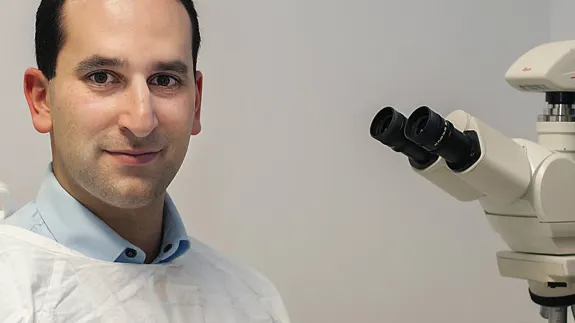2021 New Treatment Accelerator Grant - Dr George Sharbeen
Patients diagnosed with pancreatic cancer (PC) have a dismal 10% chance to survive 5-years post-diagnosis. The majority of patients are ineligible for surgery and must rely on chemotherapy, but this prolongs survival by just 2-4 months on average. One of the biggest hurdles to treatment is the high variation in the biology of tumours between patients. Personalisation of therapy has significant potential to improve the survival of these patients. This requires a method to rapidly test therapeutics on a patient’s own tumour tissue at-the-bench. However, the current best models to achieve this either lack the dense scar tissue produced by “helper cells” (major drug resistance factor), or are too slow and complicated by species differences (mouse models). The team has developed a world-first model to maintain and treat 3D pieces of human PC tissue with the full complexity of the original tumour, in a dish within 2 weeks. Importantly, the model exhibits measurable changes in response to treatment. This project will help translate this model to the clinic, by validating the model’s ability to predict patient therapeutic response. If successful, this approach could transform standard clinical practice for PC treatment globally and improve PC patient survival through personalised therapy.
Co-Investigators:
Prof Phoebe Phillips, UNSW Sydney
Prof David Goldstein, UNSW Sydney and Prince of Wales Hospital
A/Prof Joshua McCarroll, Children's Cancer Institute
Dr Koroush Haghighi, Prince of Wales Hospital
Prof Alex Swarbrick, Garvan Institute of Medical Research
Mr John Kokkinos, UNSW Sydney

